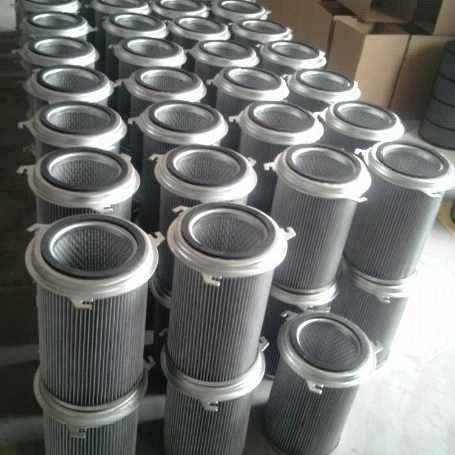 Tel:
+8618931101301
Tel:
+8618931101301
Oct . 22, 2024 14:13 Back to list
Innovative Cartridge Vacuum Filter Solutions for Efficient Liquid Filtration Systems
Understanding Cartridge Vacuum Filters A Comprehensive Overview
Cartridge vacuum filters are an essential component in various industrial processes, primarily used for the efficient separation of solids from liquids. These filters play a crucial role in industries such as food and beverage, pharmaceuticals, wastewater treatment, and chemical processing. This article provides an in-depth analysis of cartridge vacuum filters, their operation, benefits, applications, and maintenance considerations.
How Cartridge Vacuum Filters Work
At their core, cartridge vacuum filters operate based on the principles of vacuum and filtration. These filters consist of a series of filter cartridges that are typically arranged in a cylindrical housing. When a vacuum is created inside the filter, liquid containing solid particles is drawn through the filter cartridges. The design allows the liquid to pass through while retaining solids on the filter surface.
The filter cartridges are made from various materials, including synthetic fibers, polypropylene, or fiberglass, depending on the application requirements. During operation, as the liquid flows through the cartridges, solids accumulate, forming a filter cake. This filter cake can enhance the filtration process by providing an additional layer of filtration, further trapping smaller particles suspended in the liquid.
Benefits of Cartridge Vacuum Filters
1. High Efficiency Cartridge vacuum filters provide high filtration efficiency, effectively removing solid contaminants from liquids. Their design allows for fine filtration, which is particularly beneficial in applications requiring a high degree of purity.
2. Compact Design These filters are relatively compact compared to other filtration systems, making them suitable for facilities with limited space. Their vertical arrangement allows for a smaller footprint while still providing substantial filtration surface area.
3. Easy Maintenance Cartridge filters are designed for easy replacement and maintenance. The modular nature of cartridge systems allows operators to replace individual cartridges without shutting down the entire system. This feature minimizes downtime and maintenance costs.
4. Versatility Cartridge vacuum filters can be utilized in various applications and industries. They can handle a wide range of liquid viscosities and are adaptable to different solid loading conditions, making them versatile solutions.
5. Cost-Effectiveness By providing efficient filtration, these systems can reduce operational costs related to waste disposal and product losses. The ability to recover valuable solids and clarify liquids significantly enhances productivity.
Applications of Cartridge Vacuum Filters
Cartridge vacuum filters find applications in numerous industries due to their effective separation capabilities. Some notable applications include
cartridge vacuum filter

- Food and Beverage In the food industry, these filters are used to clarify juices, remove solids from beer, and ensure the quality and safety of various products by eliminating unwanted particles.
- Pharmaceuticals In pharmaceutical manufacturing, maintaining high purity standards is critical. Cartridge filters help in the filtration of active ingredients and other solutions, ensuring compliance with stringent industry regulations.
- Wastewater Treatment Cartridge vacuum filters are used in wastewater treatment facilities to separate solids from liquid effluents, aiding in the reduction of pollutants before discharge.
- Chemical Processing In chemical manufacturing, these filters can be employed to remove solids from process streams, ensuring the quality of the final product and preventing contamination.
Maintenance Considerations
To ensure optimal performance and longevity of cartridge vacuum filters, regular maintenance is crucial. Key maintenance practices include
- Regular Inspection Regularly inspect the cartridges for signs of wear and tear or clogging. This proactive approach helps identify issues before they escalate.
- Scheduled Replacements Establish a routine for replacing filter cartridges based on the manufacturer’s recommendations and the specific application requirements.
- Cleaning Depending on the application, some cartridge systems may allow for cleaning and reuse of cartridges. Ensure to follow the proper cleaning protocols to avoid damaging the filter media.
- Monitoring Performance Keep track of filtration performance metrics, such as pressure differentials, to determine when maintenance or replacements are needed.
Conclusion
Cartridge vacuum filters are an indispensable asset in many industries due to their efficiency, versatility, and ease of maintenance. By understanding their operation, benefits, applications, and maintenance needs, businesses can leverage these filtration systems to enhance product quality, reduce operational costs, and ensure compliance with industry standards. As industries continue to evolve, the demand for efficient filtration solutions like cartridge vacuum filters will likely grow, reinforcing their importance in modern manufacturing processes.
-
Working principle of high-efficiency dust filter elementNewsJun.26,2025
-
The truth about washable filters: Does repeated use really not affect efficiency?NewsJun.25,2025
-
Effect of humidity on the performance of activated carbon filter elementsNewsJun.24,2025
-
Material selection considerations for dust removal filter elements under high temperature conditionsNewsJun.23,2025
-
Cold knowledge of air filters: Why are some designed to be pleated?NewsJun.16,2025
-
Factory direct supply! High-precision air filter element wholesale and customizationNewsJun.12,2025

 Email:
Email:





